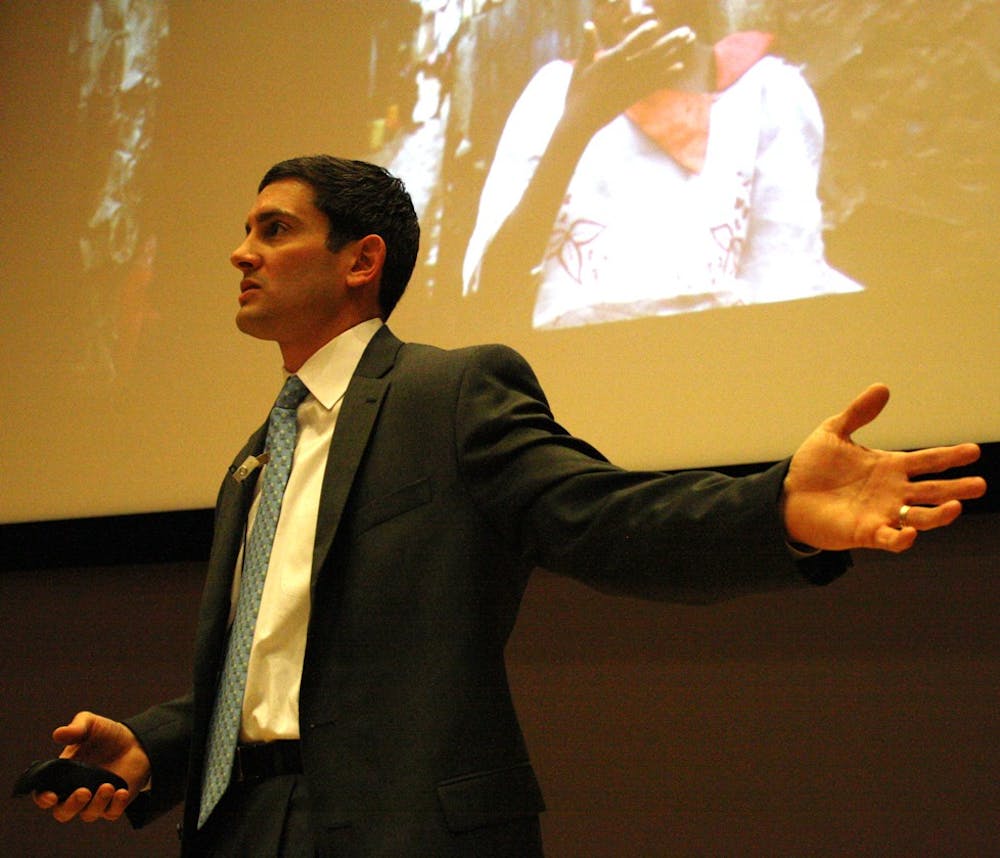Ten years later, Rye Barcott returned to where it all began.
Barcott came to the University Tuesday to celebrate the release of his first book, “It Happened on the Way to War,” which coincides with an art exhibit meant to commemorate the tenth anniversary of Carolina for Kibera, a group he started as a UNC student.
“Here in Chapel Hill, where it all started,” he said.
The book starts when Barcott received a scholarship through the Burch Fellows Program at UNC to conduct research in Rwanda on ethnic violence. After 9/11 security restrictions forced him to change his plans, he redirected to Kibera.
Upon seeing the poor conditions in Kibera, Barcott decided to take action.
“In our world of plenty, people shouldn’t have to live like this,” he said.
Barcott said the first thing he did was give $26 to a woman from Kibera named Tabitha Atieno Festo, who managed to use that money to sell vegetables and start a clinic that now treats more than 40,000 patients a year.
He then helped to found Carolina for Kibera, which supports Festo’s clinic and a soccer league that works to create role models in the community and fight ethnic violence in the area.
“In order to play soccer, you have to do community service,” Barcott said of the program.



